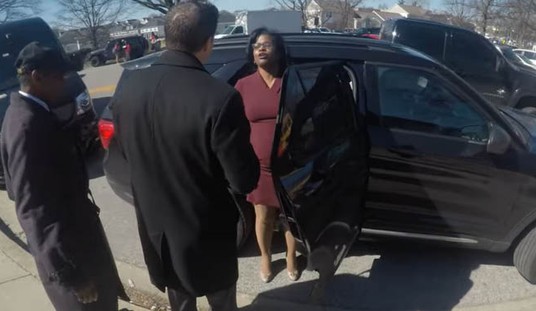The details are vague but it sounds like they want a two-tiered standard of “probable cause,” one for solving crimes after they happen and another, lower standard for their new mission of preventing attacks before they occur.
Or maybe they just want the lower standard to apply across the board. As I say: vague.
Currently, FBI agents need specific reasons — like evidence or allegations that a law probably has been violated — to investigate U.S. citizens and legal residents. The new policy, law enforcement officials told The Associated Press, would let agents open preliminary terrorism investigations after mining public records and intelligence to build a profile of traits that, taken together, were deemed suspicious.
Among the factors that could make someone subject of an investigation is travel to regions of the world known for terrorist activity, access to weapons or military training, along with the person’s race or ethnicity…
The changes would allow FBI agents to ask open-ended questions about activities of Muslim- or Arab-Americans, or investigate them if their jobs and backgrounds match trends that analysts deem suspect.
It’s an AP story so I’ll leave the quoting at that. Eavesdropping and pulling personal data would still be off limits unless and until a formal investigation is launched; as of right now, the FBI can build “threat assessments” of individuals based on public records, but apparently there’s some distinction between that and the “preliminary investigation” that the new policy would allow that I’m not grasping. Presumably the current policy doesn’t authorize questioning suspects based on the threat assessment. Whether that means the new policy would authorize arresting them too, I can’t tell. (As I say: vague.) The feds naturally insist this wouldn’t let them do anything they can’t already do, but what you’re seeing here is the same thing you’re seeing on an even grander scale in Britain with house arrests of known terrorists who clearly pose a public threat but can’t be locked up because there’s not enough hard evidence to convict them under traditional western criminal standards of proof. The solutions thus far are novel, hybrid legal devices like control orders over there (which don’t always, or even often, work) and maybe two-tiered probable cause over here, in the highly unlikely event that five members of the Supreme Court are willing to sign off on that. Prediction: The policy will be abandoned once the election-year microscope is turned on it and the inevitable uproar ensues. And then it’ll be reintroduced and reconsidered after the next attack. Exit question: Be on the lookout for English-speaking caucasians with light-colored eyes?








Join the conversation as a VIP Member